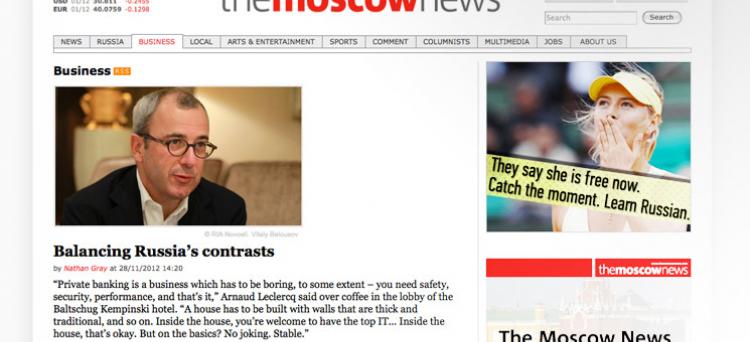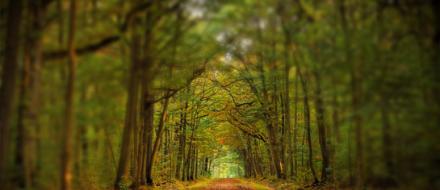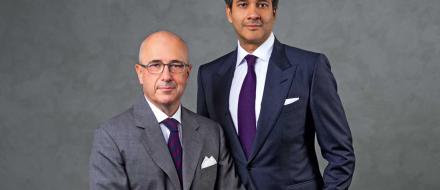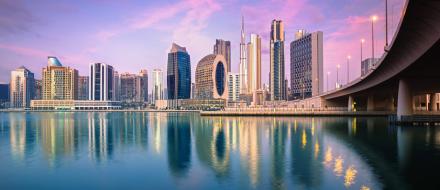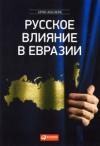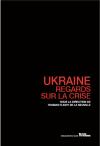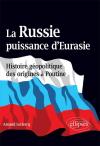Balancing Russia's contrasts
Arnaud Leclercq was interviewed on 28 November 2012 by Nathan Gray for "The Moscow News". Here is the content of this interview.
“Private banking is a business which has to be boring, to some extent – you need safety, security, performance, and that’s it,” Arnaud Leclercq said over coffee in the lobby of the Baltschug Kempinski hotel. “A house has to be built with walls that are thick and traditional, and so on. Inside the house, you’re welcome to have the top IT… Inside the house, that’s okay. But on the basics? No joking. Stable.”
Despite this professional maxim, Leclercq, head of new markets for Geneva-based bank Lombard Odier Darier Hentsch, has not had a boring career. Born in France in 1967, he started out as a lawyer and lived in Poland, Switzerland, Russia and Turkmenistan before moving to Dubai last year.
His extensive knowledge of Russia, coming from 20 years of work with Russian clients and business, has resulted in a book just published in French, “Russia: Power of Eurasia.”
“Sometimes you didn’t know whether you or the people you were talking with would still be in the business, you know, in the next month or so,” he said of his first time in Moscow, in 1992. “But on the other hand, there was lots of freedom, the country was opening, people were trying to do something, and there was a very strong energy.”
While the energy in Russia has shifted, the contrasts that interest him so much have remained.
“What makes Russia fascinating – and the Russian people, even, your clients, as well – it’s always the contrast and paradox which make the country difficult to understand,” Leclercq said. “Sometimes you have opposing views about the same thing, you see the bowl half-empty or half-full.”
Tied to history
The book represents an effort to look at all the aspects of Russian identity—including religion, geography, history and relations with Europe—to understand where the country stands today, he said. The two subsequent parts deal with Russia’s economy and “internal redeployment,” and its relationships with its neighbors—which, from Georgia to Kyrgyzstan, have recently counteracted the “rollback” of the 1990s. The book also examines relationships with countries farther afield, such as the other BRICs and the United States.
The problem with many modern understandings of Russia, Leclercq said, is that experts often do not take account of its contrasts.
He offers a comparison with France. Observers have a stereotype that the country is rife with strikes, social tensions and high taxes, but the situation is really more nuanced. France received $40 billion in foreign direct investment in 2011, according to the United Nations Conference on Trade and Development – fourth in the European Union. It’s also home to some of the largest companies in Europe, such as Michelin, Dassault and Louis Vuitton, which rarely experience strikes.
Similarly, with Russia, people either focus on the strengths, such as a balanced budget, low unemployment and under-control inflation, or on the weaknesses – corruption, an over-reliance on oil revenues and high rates of capital flight.
Even the widely derided capital flight, however, has another side to it.
“Russia has accepted to have an absolutely free flow of capital, which is not the case for other countries, say, China or India, for instance,” he said. “On the one hand, this is very liberal, so in my view, Russia should not be blamed for that. People complain about the outflow of capital, and rightfully so, but on the other hand it means that you can do it.”
A sense of risk
Still, however, Leclercq agrees that Russia is exposing itself to significant risk in its dependence on oil and gas prices. The change since 2007 in the per-barrel price of oil needed to balance the budget is the strongest indicator of this risk, from around $35 then to $117 today.
Export of shale gas by the United States could upset Russia’s international dominance in the market. Furthermore, even though France, which has the largest estimated reserves in Western Europe, has instituted an ecological ban on exploration, there is no guarantee that it will remain in place, Leclercq said.
“Today Gazprom, in order to match its capital expenditures, should have an MMBTU [1,000 cubic feet] price of $14. Shale gas in the U.S. is about $3.5. We’re still at the time of uncertainty, because it’s brand-new in the U.S.,” he said. “[If France exploits its reserves], well, that would have an impact on the price of gas, for sure…. That’s a big threat for the near future.”
For the future, Russia needs two things, Leclercq said: development of its access to international financial markets, and greater exploitation of its geographical position between Europe and Asia.
“Your brain has two parts, and now, Russia just seems to be using one and not the other one, where certainly, Eurasian and all of these developing countries are more open-minded toward Russia,” he said. “They don’t know [Russia] enough, but from my perception, they don’t seem to be negatively rooted or grounded.”



